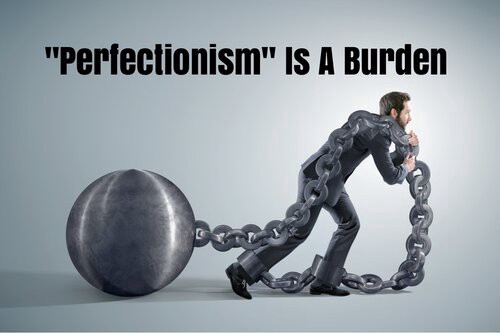

Positive psychology tells us that 'perfectionism' is a personality trait characterized by a person's striving for flawlessness and setting excessively high-performance standards, accompanied by overly critical self-evaluations and concerns regarding others evaluations.
John was a Senior Operational Head in a medium-sized technology firm. He considered himself a perfectionist and was very proud of it. He believed that his quest for perfectionism will bring him success in his role because after all, he was setting such high standards for himself and his team. He worked long hours perfecting his work that eventually resulted in his micro-managing his team.
To help him with his leadership development, John was assigned a coach and received 360-degree feedback as part of the programme.
John was disappointed to know how his team perceived him. His constant bouts of anger and controlling attitude were causing the team a great deal of stress. The team was functioning in fear and people were hesitant to communicate with John. John's manager too expressed his concern about John's emotional outbursts and his well being. John was known to work and send emails at the wee hours of the morning.
The feedback made John sit up and think about his quest for perfectionism. He admitted to being constantly stressed causing pain to his family besides to his colleagues and himself. It was time for him to evaluate what it meant to be perfect and its impact on his leadership.
When leaders are perfectionists, there is little room for mistakes in their world! Setting very high standards for themselves and others, they can be seen as being rigid and overly demanding especially during times of stress. They can be impatient with other people's shortcomings and critical of themselves and their teams when standards are not met, thus threatening relationships.
Here are six signs that tell you, that you may be weighed down with being a perfectionist.
You find it hard to delegate -You have expectations about how things should be done and you find it hard to accept work in any other way. You worry about the work not conforming to your standards, so you prefer to do the work yourself, avoiding delegation.
The impact of your behaviour is that it prevents your team from learning, developing and increases their dependency on you. Additionally getting entangled into being a micromanager, you can lose focus on your larger role as a leader.
You are driven by fears of failure -Failure is not an option for you and you want to avoid it at all costs! This makes you worry about losing control. When people are controlled it prevents them from being creative or offering their ideas and insights because they feel confined.
You procrastinate when dealing with change or implementing something new - You can be spending a great deal of unnecessary time to perfect a task or initiative instead of getting started. This can create frustration amongst your internal and external stakeholders, as timelines are not met and the delays impact your credibility and your leadership effectiveness.
Similarly, when embarking on a new project or dealing with change, you wait for everything to be right, to deliver your best quality of work. However, on some occasions, this state of "readiness" never seems to come and it may mean you are perpetually waiting just to get something done. At times, the need is for you to simply start and allow things to fall into place.
You are extremely hard on yourself. - Whenever something goes wrong, you are self-critical and hard on yourself. There is a tendency to ruminate or mull over things that did not go as per expectations. People who are self-critical can be very critical about others too. When others are criticized by you, it makes them anxious and fearful, impacting their performance as they do not feel safe around you. Your department can get known for the stress and worry people carry with them.
Feelings of satisfaction and content seem to elude you - Success never seems enough. No matter what you achieve and how much you achieve, there is always an inner narrative that tells you that it could have been better or where you fell short. This creates negative emotions like anxiety, sadness etc. Your emotional state impacts your well being, executive presence and you could be coming across to your teams as remorseful and edgy.
Coming back to John his commitment to his high standards continued post-coaching because it was his core value but he learnt to balance it with empathy for himself and others. His new leadership skill became striving for excellence vs perfectionism because he understood 'perfect' is only a subjective measure.
A lot of the work John did was linked to the three areas discussed below that help in managing to be a perfectionist.
Exploring and challenging the underlying beliefs - In most cases, perfectionism is the result of strong underlying beliefs about success, our concept about ourselves and what we believe makes other people accept us. For example, If you happen to grow up with parents who were never satisfied with who you were and constantly pushed you for more, then you may have developed a strong belief, that you cannot be accepted unless you are perfect. Challenging the belief and replacing it with a more empowering one helps in navigating a perfectionist mindset.
Understanding the role of failure in our growth - Very often perfectionism is like an outer guard, protecting us from our inner fear and pain of failure! Understanding the important role of failure in our development, growth and success helps us to accept it and learn from it.
Building Trust - Amongst the many keys to becoming a leader is the most significant one - building trust with people. John took the time to sit with each of his team members to revisit his expectations, but importantly to let them know that he will delegate more because he wants them to learn and grow. He took his responsibility as a leader to develop his team and that meant making space for failures. Slowly the team saw the changes and there began the road to trust.
Conclusion
Finally, perfectionism is a very heavy burden to carry on your shoulders. Freeing from it you step into a growth-oriented leadership mindset thus freeing the people around you.
Aim to be perfectly comfortable with being imperfect! It makes the journey more exciting!
 10 Powerful End-of-the-Year Reflecti ...
Socrates said, “The unexamined life is not worth living.” For leaders, the unexamined year becomes a missed opportunity for intentional growth. ...
Read More
10 Powerful End-of-the-Year Reflecti ...
Socrates said, “The unexamined life is not worth living.” For leaders, the unexamined year becomes a missed opportunity for intentional growth. ...
Read More
 How Emotional Intelligence Builds Ex ...
Leadership is not about being in charge. It's about taking care of those in your charge. -Simon Sinek In today's complex, fast-paced business world, te ...
Read More
How Emotional Intelligence Builds Ex ...
Leadership is not about being in charge. It's about taking care of those in your charge. -Simon Sinek In today's complex, fast-paced business world, te ...
Read More
 5 Ways to Communicate Effectively in ...
Let's face it - Conflict is an inevitable part of life, whether in personal relationships, the workplace, or social settings. Conflict arises when your ideas, needs and beliefs differ from ...
Read More
5 Ways to Communicate Effectively in ...
Let's face it - Conflict is an inevitable part of life, whether in personal relationships, the workplace, or social settings. Conflict arises when your ideas, needs and beliefs differ from ...
Read More